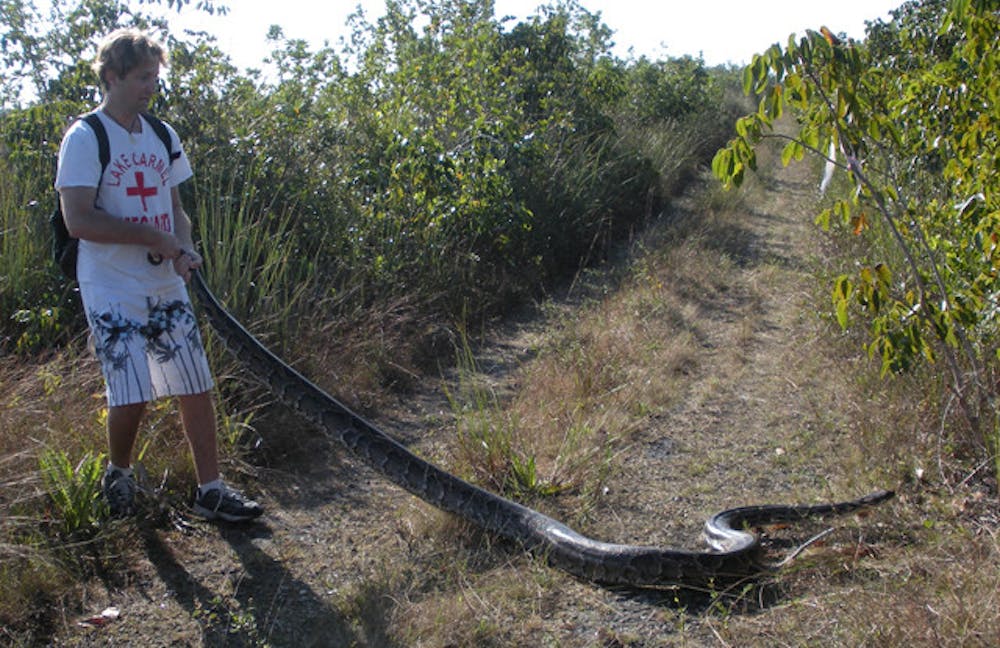Floridians are well acquainted with their state's scalier residents. They have shared property lines with alligators and tree frogs, swept lizards out of their houses and gone to battle with a snake or two.
And like many other Floridians, an increasing number of these critters is not native to the state.
In fact, Florida has now been identified as the area with the largest invasive reptile and amphibian problem in the world, according to a recent study led by a UF researcher.
The results of the two-decade-long study, published in the September edition of the scientific journal Zootaxa, indicate that 137 non-native species of reptiles and amphibians have been introduced to Florida since 1863.
For example, today, there are 43 non-native species of lizards in Florida and only 16 native, according to the study.
The environmental impact of these creatures - such as the Burmese python, brown anole lizard and green iguana - can be difficult to quantify, said Rob Robins, a collection manager at the Florida Museum of Natural History familiar with the study.
Exotic species compete with the native populations for food and habitat, and sometimes the foreigners are victorious.
The UF study seeks to give researchers a strong basis from which to examine the extent of such an impact by identifying and verifying each non-native species.
"The more information you have about non-indigenous reptiles and amphibians, the better idea you have about their range, distribution and potential impact," Robins said.
Until about 1940, the majority of non-native species arrived in Florida via cargo ships or planes from the West Indies or Cuba. More recently, the study indicates, the pet trade, or importing animals to be sold as pets, has been responsible for about 84 percent of all non-native introductions.
While owning an exotic reptile or amphibian is OK, Florida law forbids the release of a non-native species into the wild without a permit.
Robins said this law, however, is fairly unenforceable because a Florida Fish and Wildlife Conservation Commission officers must actually witness the release of the animal in order to charge someone with the crime. To date, no one has been prosecuted for releasing a non-indigenous animal.
One animal importer in particular, Strictly Reptiles Inc. of Hollywood, Fla., was responsible for about 25 percent of the non-native species in Florida.
Ray Van Nostrand, a co-owner of the business, said Strictly Reptiles imports and distributes reptiles to customers all over the United States, including pet owners, researchers and zoos.
Van Nostrand questioned whether pet owners' release of exotic animals was really a problem.
"Researchers don't really know the environmental impact," he said. "Out of all the years I've been doing this, I've never had a call that said, ‘There's an exotic frog in my yard, and it's a problem.'"
UF researcher Kenneth Krysko removes a Burmese python from the underbrush near a South Florida canal. Krysko led a study published online in Zootaxa on Thursday documenting 137 introductions of non-native amphibians and reptiles to the state. Burmese pythons are known to consume birds, alligators and many protected species.






